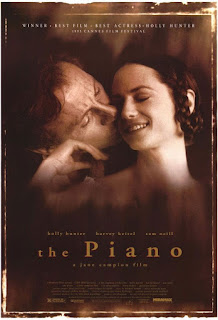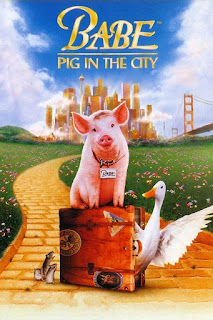April 4th: HOWARDS END (James Ivory, 1992)
NOTE: This film will be projected in the high-definition Blu-ray format.
In England at the turn of the century, the lives of three families of various economic and social standings are intertwined, with tragic results.
E.M. Forster was one of Britain's most acclaimed 20th century writers, and though he only published five novels in his lifetime, was an outspoken humanist and pacifist who devoted much of the second half of his life to broadcasting and advocating for various liberal social causes. His works concerned themselves primarily with class issues, and he was nominated for the Nobel Prize for Literature 16 times.
The Merchant Ivory production company began in 1963 as a collaboration between American filmmaker James Ivory and Indian filmmaker Ismail Merchant, the original purpose being a series of films made in India in the English language, with an eye on international distribution. Soon brought into the fold was German-born writer Ruth Prawer Jhabvala, who married a local and had been living in India since the early days of its independence. The team's films were usually based on Jhabvala's original scripts, but by the late 1970s they made the move into literary adaptations of writers like Henry James and John Cheever, and their film of Forster's A Room With A View became their biggest success to date, and all three members received Oscar nominations.
Jhabvala felt that a film of Forster's Howards End would be a major but needed challenge for Merchant Ivory, and began working on a script from a copy of the book marked with notes by Ivory. Ironically, despite the company's success, funding proved difficult and most of the investors were from Japan.
The first cast member to join the production was Anthony Hopkins, fresh off his Oscar-winning turn in The Silence of the Lambs. Ivory had his heart set on casting screen veteran Vanessa Redgrave in a smaller but crucial role. Various younger actresses were considered for the female lead, but it went to newcomer Emma Thompson, whose screen debut was 2 years earlier in husband Kenneth Branagh's film of Shakespeare's Henry V. Joining her is Helena Bonham-Carter, in her third E.M. Forster film for Merchant Ivory.
The film was shot entirely on location in England, including Victoria Square, Piccadilly, and Chiswick in London, Oxfordshire, and Herefordshire. Standing in for the titular house that features so heavily in the plot was one owned by a friend of production designer Luciana Arrighi, apparently one that Forster himself had visited. The film was shot on 70mm, a first for Merchant Ivory, by their usual cinematographer Tony Pierce-Roberts.
Howards End was very well-received by critics and became Merchant Ivory's biggest financial success to date. It showed at the Cannes Film Festival where it won a special 45th festival anniversary prize. It received 9 Academy Award nominations, with Thompson and Jhabvala winning Oscars; Thompson won every major critics and institution award that year. In 2016 the original negative was restored and scanned, the transfer supervised by Ivory and Pierce-Roberts, and re-released to theaters.
Running time is approx. 2 hrs, 15 min.
In England at the turn of the century, the lives of three families of various economic and social standings are intertwined, with tragic results.
E.M. Forster was one of Britain's most acclaimed 20th century writers, and though he only published five novels in his lifetime, was an outspoken humanist and pacifist who devoted much of the second half of his life to broadcasting and advocating for various liberal social causes. His works concerned themselves primarily with class issues, and he was nominated for the Nobel Prize for Literature 16 times.
The Merchant Ivory production company began in 1963 as a collaboration between American filmmaker James Ivory and Indian filmmaker Ismail Merchant, the original purpose being a series of films made in India in the English language, with an eye on international distribution. Soon brought into the fold was German-born writer Ruth Prawer Jhabvala, who married a local and had been living in India since the early days of its independence. The team's films were usually based on Jhabvala's original scripts, but by the late 1970s they made the move into literary adaptations of writers like Henry James and John Cheever, and their film of Forster's A Room With A View became their biggest success to date, and all three members received Oscar nominations.
Jhabvala felt that a film of Forster's Howards End would be a major but needed challenge for Merchant Ivory, and began working on a script from a copy of the book marked with notes by Ivory. Ironically, despite the company's success, funding proved difficult and most of the investors were from Japan.
The first cast member to join the production was Anthony Hopkins, fresh off his Oscar-winning turn in The Silence of the Lambs. Ivory had his heart set on casting screen veteran Vanessa Redgrave in a smaller but crucial role. Various younger actresses were considered for the female lead, but it went to newcomer Emma Thompson, whose screen debut was 2 years earlier in husband Kenneth Branagh's film of Shakespeare's Henry V. Joining her is Helena Bonham-Carter, in her third E.M. Forster film for Merchant Ivory.
The film was shot entirely on location in England, including Victoria Square, Piccadilly, and Chiswick in London, Oxfordshire, and Herefordshire. Standing in for the titular house that features so heavily in the plot was one owned by a friend of production designer Luciana Arrighi, apparently one that Forster himself had visited. The film was shot on 70mm, a first for Merchant Ivory, by their usual cinematographer Tony Pierce-Roberts.
Howards End was very well-received by critics and became Merchant Ivory's biggest financial success to date. It showed at the Cannes Film Festival where it won a special 45th festival anniversary prize. It received 9 Academy Award nominations, with Thompson and Jhabvala winning Oscars; Thompson won every major critics and institution award that year. In 2016 the original negative was restored and scanned, the transfer supervised by Ivory and Pierce-Roberts, and re-released to theaters.
Running time is approx. 2 hrs, 15 min.










Comments
Post a Comment